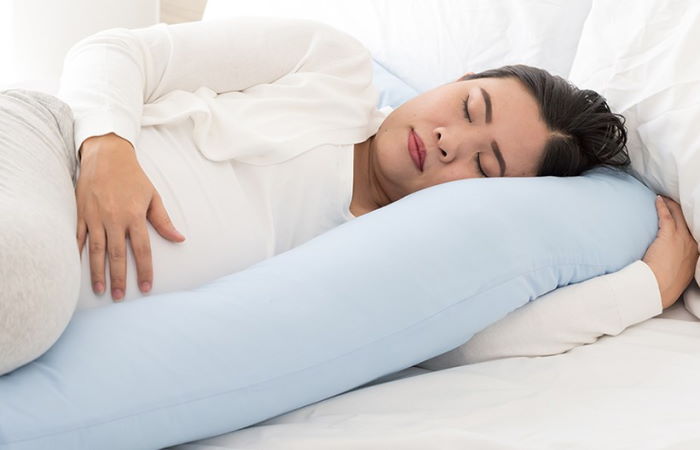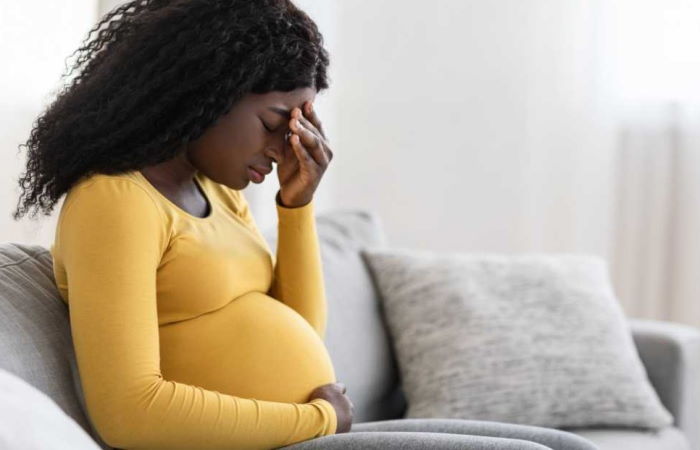Pregnancy causes a lot of changes in a woman’s body, from physical to emotional discomfort caused by fluctuating hormones and accommodating the growing human inside the womb, to excitement and anxiety of being a new mother. All these things and more lead to a host of sleep problems. One of the most common complaints women have during pregnancy is sleep apnea and its related symptoms. As a matter of fact, almost 20 percent of pregnant women suffer from obstructive sleep apnea (OSA). But is there a way for expecting mothers to better deal with sleep apnea while pregnant? Can it be avoided?
Affecting more than 22 million people in the United States alone, sleep apnea is a common yet potentially dangerous sleep disorder. It is usually a symptom of a more serious underlying condition, such as high blood pressure, heart problems, type 2 diabetes, excess weight, obesity, etc.
The relationship between sleep apnea and pregnancy
Characterized by chronic and loud snoring, sleep apnea is a disruption in breathing patterns during sleep caused by an obstruction in the airways. There are lots of things that can cause an obstruction in the airway, from excess weight, limitations due to the anatomy of the throat, problems in brain signals, or in expectant women – hormonal changes.
While pregnancy increases the risk of developing OSA due to the changes in a woman’s body, the condition often goes undiagnosed and untreated. This is because many of its symptoms overlap common side effects of pregnancy, such as morning nausea and headaches, body aches, heartburn, as well as emotional changes.
The problem with sleep apnea during pregnancy however is that it can lead to a number of health complications, including high blood pressure, gestational diabetes, preeclampsia, and even premature delivery. Moreover, sleep apnea increases the risk of needing a C-section delivery, longer labor, and complications with anesthesia.
What causes obstructive sleep apnea while pregnant?
Pregnancy causes a wide array of changes in a woman’s body, including hormonal changes. Hormones like estrogen and progesterone shoot up during each trimester. Progesterone, for example, stimulates the brain receptors to help improve breathing and oxygen consumption, leading to an increase in sleep apnea symptoms.
Moreover, the expectant woman’s uterus expands which restricts the lung’s capacity by up to 20 percent. That is on top of the normal reductions that usually happen during sleep. Plus, the woman’s body increases oxygen consumption by 20 percent. This causes pregnant women to take more breaths per minute, even when in a relaxed state.
Also, the capillaries throughout the woman’s body are engorged with blood. This leads to an increase in fluid retention around the throat, which then leads to narrowing of the breathing airways.
All these things contribute to obstructive apnea. Thus, the woman’s body is more taxed when breathing, especially when lying on her back as gravity pulls everything down, putting more pressure on the airways. Subsequently, this is also what contributes to annoying pregnancy symptoms that disrupt sleep, like pregnancy rhinitis and even nosebleeds.
Additionally, since sleep apnea symptoms are quite similar to the side effects of pregnancy, which also causes insomnia, many expectant women go undiagnosed.
It is important to note that not all pregnant women suffer from OSA snoring. However, they still suffer from the ill effects of bad sleep quality and inadequate sleep, such as general fatigue, mood swings, and even anxiety. Also, some pregnant women even confuse sleep apnea episodes with having a nightmare.
Risks of sleep apnea during pregnancy
Since sleep apnea limits the body’s intake of oxygen, over time, a woman’s body will suffer from the ill effects of low oxygen levels in the blood. This can lead to high blood pressure, cardiovascular issues, and even serious health problems.
What is worse is that pregnant women with chronic sleep apnea are at higher risk of developing conditions that can affect the health of their babies, such as gestational diabetes and preeclampsia. This is why it is extremely important to diagnose and treat chronic snoring during pregnancy.
Sleep apnea while pregnant: warning signs to look for
Loud snoring with choking sounds or sudden gasps for air is the tell-tale sign of obstructive sleep apnea. The toll of not getting enough oxygen to the body while sleeping results in restless sleep which is pretty noticeable during the daytime as it causes excessive fatigue, daytime sleepiness, difficulty concentrating and remembering things, mood swings, irritability, and anxiety.
If you find yourself often falling asleep while reading a book, watching TV, or even while working in front of the computer, then you should talk to your doctor.
Other warning signs of obstructive sleep apnea include:
- Morning headaches
- Dry mouth and sore throat
- Nighttime sweating
- Lower sex drive
You can also refer to a sleep specialist for additional tests to get a more thorough diagnosis. They usually suggest polysomnography, which measures the airflow, breathing patterns, the oxygen level in the blood, etc., while you sleep to confirm the presence of sleep apnea. This can be done in the lab or at home.
Treatment for sleep apnea while pregnant
Generally, treatment for sleep apnea starts with lifestyle changes. This includes a balanced diet and exercise, avoiding alcohol and smoking, etc. Some people may be required to wear sleep devices such as mandibular advancement devices (MAD) to address snoring and sleep apnea. This is a type of mouthpiece that opens the airways by moving the lower jaw (mandible) forward.
For more severe cases, doctors may prescribe positive airway pressure therapy such as Continuous Positive Airway Pressure (CPAPP), or Bi-level Positive Airway Pressure. These are machines that provide a gentle flow of air pressure (delivered through a mask) to keep the airways open and maintain normal breathing patterns. Fortunately for expectant women, research shows that the use of these types of treatments is safe and effective in greatly reducing the symptoms and risks of OSA, before, during, and even after pregnancy.
Also, sleeping on your side can help reduce the pressure on the chest. This is why doctors often discourage pregnant women from sleeping on their backs. If that seems difficult, or if you often revert to sleeping on your back, you can place a tennis ball under your lower back. This will remind you to sleep on your side.
For snoring caused by congestion, you can have a humidifier, try a saline spray or saline rinse (with Neti pot), or over-the-counter decongestant. Obviously, if you go for OTC drugs, make sure they are prescribed by your obstetrician.
For pregnant women with excess weight, it is best to consult your doctor for the best weight management plan during pregnancy.
Does snoring go away after pregnancy?
Yes. Once the baby has arrived, OSA and all of its symptoms will gradually subside until they disappear. As a matter of fact, things will get so much better with the weight loss that comes after pregnancy. However, weight loss alone isn’t the one-size-fits-all solution for sleep apnea. Some women may need extra help from their health provider to effectively treat obstructive sleep apnea.


























